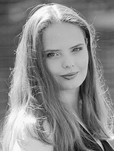Artistic progress facilitating model for 4-6 year-old figure skaters in view of age-specific psycho-physiological characteristics
Фотографии:
ˑ:
Master's student O.O. Shalaeva
Moscow State Academy of Physical Education, Moscow
Objective of the study was to provide a theoretical basis for and test benefits of the new artistic progress facilitating model for the 4-6 year-old figure skaters. The methods applied for the study purposes were as follows: analysis of reference literature; questionnaire survey; educational process monitoring; expert interviews; and standard mathematical statistical data processing method. 5-6 year-old junior skaters (n=69) and 3 coaches were sampled for the study purposes. The model testing experiment was completed in 2016-18 at Figure Skating Sport Academy in Moscow and included the following stages: primary artistry rating tests; individualized artistic progress facilitating trainings based on the relevant practical recommendations; progress tests in the Experimental (EG) and Reference (RG) Groups; findings; and assessment of the model benefits. The EG and RG were composed of the children tested with similar primary artistry levels. The new artistic progress facilitating model was tested beneficial as verified by the EG versus RG progress in the creative resource mobilizing and building; physical activity; and determination and emotionality in the training process.
Keywords: artistry, figure skating, primary training stage, training model.
References
- Vaganova A. Y. Osnovy klassicheskogo tantsa [Fundamentals of classical dance]. Moscow: Art publ., 1980, 68 p.
- Zakharov R V. Sochinenie tantsa: stranitsy pedagogicheskogo opyta [Dance design: pages of teaching experience]. Moscow: Art publ., 1983, 20 p.
- Ivanov S.A. Tantsy, igry, dlya krasivogo dvizheniya [Dances, games, to move good]. Moscow, 2000, 102 p.
- Moiseev I.A. «Ya vspominayu… Gastrol dlinoyu v zhizn ["I remember ... Lifetime tour"]. 2nd ed., rev., sup.. Moscow: Soglasie publ., 1998, 15 p.
- Pasyutinskaya V. M. Volshebny mir tantsa [The Magic World of Dance] Moscow, 1995, P. 156.




 Журнал "THEORY AND PRACTICE
Журнал "THEORY AND PRACTICE